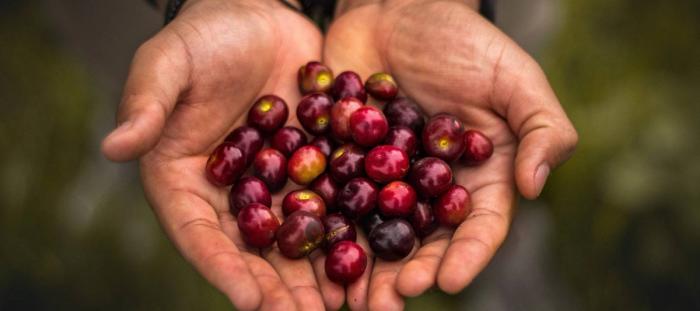The Rich Story of Scripture
You probably have a friend or family member who has told the same story dozens of times, but somehow, each time, you are still interested in hearing it. Stories that have this kind of staying power are not simply entertaining. They are instructive. They are about the past but affect the present and might even point the way to a future.
That's what we want to do with Scripture. We want to be able to tell and retell the story and have it shape us. This will help us remember it and quickly return to it when life's troubles come our way.
Ephesians 1:3–14 is a particularly rich way of telling the story of Scripture, and Paul's excitement is such that the original passage is one long, breathless sentence. The flow of his thought goes from past, to present, to future.
Past
Our past is a mess of good things and horrible things. The way we tell it at age twenty is different from the way we tell it at sixty. Paul assumes we all have our particular stories; he is telling the deeper one, one that we are all a part of:
He chose us in him before the foundation of the world, that we should be holy and blameless before him. In love he predestined us for adoption as sons through Jesus Christ. (Ephesians 1:4–5)
And what does this story of being chosen and predestined for adoption have to do with past victimization, rejection, or loss? It certainly does not minimize them. If anything, it shows their wrongness even more vividly because they are against God and his original intent. What the story does is counterbalance our past with a story of love, grace, and belonging that says, "Evil and misery will not win," and "Things are not what they seem." Every retelling of the story, as it gathers more details of the blessings we have in Jesus, adds more weight to the master story.
This is reality for those who follow Jesus. He pursued us. We were loved and adopted by him. This means that life in Christ is not an extended probation. Since his love is not dependent on our vacillating allegiances but on choices he made long ago, we rest in Jesus and have a revitalized purpose now that we are in the royal family.
Present
God's persistent love through the ages moves to redemption and forgiveness of sins in the present. Everything hinges on this. If we are left in our sin, then we are separated from God. Only Christ's surprising sacrifice for us can bring the holy God so close that he never leaves.
In him we have redemption through his blood, the forgiveness of our trespasses, according to the riches of his grace, which he lavished upon us, in all wisdom and insight making known to us the mystery of his will, according to his purpose. (Ephesians 1:7–9)
Why bother retelling that? Forgiveness can seem a bit remote to people who either believe that their sins are not too big a deal or believe that forgiveness is too good to be true. Either way, Jesus is marginalized from daily life, and thankfulness is dependent on the events of the day rather than the unchanging blessings of God.
This part of the story sings when we remember that we are, indeed, sinners who turn away from God. Even when we care about others, we can never root out the selfishness, and, too often, obedience is merely a happy coincidence between what we want to do and what God says. So this deeper story works best when we are in the habit of confessing sins—"Forgive us our debts, as we also have forgiven our debtors" (Matthew 6:12).
Lavish grace. That is at the center of our present story.
Future
A good story ends well. Hope is essential to the human life. Without it we try to stay busy enough so that we are distracted by the bleak realities ahead. God's master story, of course, is the story of hope.
A plan has been set forth in Jesus Christ, a plan for the fullness of time, to unite all things in him, things in heaven and things on earth. In him you, when you believed in him, were sealed with the promised Holy Spirit, who is the guarantee of our inheritance until we acquire possession of it, to the praise of his glory. (assembled pieces of Ephesians 1:9–14)
The part about "all things . . . in heaven and things on earth"? God's plans are to restore us—and creation itself. All things amiss now are to be gathered in under the activity of King Jesus. Everything will be made right. Something is afoot. Not only do we personally know the forgiveness of sins; we are also brought into God's plans to restore justice, beauty, reconciliation, and mercy. When we come to Jesus, life is suddenly jammed with purpose.
There are ways that we participate in those purposes even now. We have been brought into God's reclamation project, and simple acts of love, which echo God's justice, beauty, reconciliation, and mercy, are now incorporated into his kingdom plans. Everything done because of Jesus contributes to these final purposes. Death does not diminish them.
This hope strengthens us in the hardships and drudgeries of everyday life. Knowing where all things in heaven and earth are headed, we can wait and persevere (1 Thessalonians 1:2), and that endurance or perseverance is key to a life well-lived. Without it, we are left with grumbling, addiction, or despair. With it, we look ahead and tell a different story than the present distress tries to tell. Whereas chronic suffering assumes that nothing will ever change, hope knows that our rescuer is committed to our good. Hope knows the love of Jesus and grows in confidence that all the promises God makes have already been yes in Jesus.
Content adapted from Side by Side: Walking with Others in Wisdom and Love by Edward T. Welch. This article first appeared on Crossway.org





